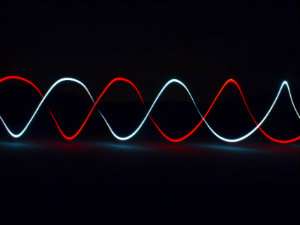Canadian Company Offers DNA Preservation Service
Because why stop at preserving the memory of a loved one?


How best to memorialize deceased loved ones is a question all families must ask themselves. For the most part, the answer is a conventional tombstone or urn. Now however those left behind have a new way to remember relatives in the form of DNA preservation.
DNA Memorial is a Canadian company that offers its customers a unique opportunity to save the genetic information of their dearly departed through their own special DNA preservation process.
How it works is quite simple: A customer, generally through a funeral home, will collect a DNA sample from the saliva or hair of the deceased on a cotton swab. That sample is then shipped to DNA Memorial, where the DNA is extracted, purified and then bound in a special chemical process to a silica-based substrate. The end result is a white powder of the deceased's genetic information that can be safely stored in the home at room temperature, preserving their unique genetic blueprint indefinitely.
Though this might sound strange to those more accustomed to burial or cremation, DNA preservation serves a number of unique purposes for relatives of the deceased.
Neal Esau, the company's co-founder and operations manager, tells Reason that many of their initial customers were interested in preserving DNA in order to trace their ancestry, for which having the exact genetic blueprint of one's immediate predecessor is quite useful. For a few this interest was more than just historical; the company has apparently performed a number of post-mortem paternity tests.
Those more interested in the sentimental side of things have themselves been drawn to DNA Memorial's line of jewelry and glassware, which is crafted with the DNA of whoever is to be memorialized
Great as these uses are, says Esau, the real benefits of DNA preservation come from its medical applications. Being able to provide a more a complete picture of a patient's genetic background enables his or her doctor to better test for and treat genetic diseases. And as the field of genetic science develops, it is hoped that the uses of DNA preservation will develop along with it, allowing medical professionals to more precisely trace mutations in populations or to create individually designed medical treatments tailored to one's specific genetic background.
Despite this being a new idea in an admittedly conservative field, Esau says DNA Memorial's services are proving quite popular. Having only started in 2014, the company now works with hundreds of funeral homes all across the U.S., U.K., and Canada, as well as with a single location in Israel.
And as the practice gains more mainstream exposure, the folks at DNA Memorial envision a number of new potential services, from launching DNA vials into space to storing it in ink for tattoos. That last one could give the classic mom-heart design some added significance.
Update 10/10: The spelling of Mr. Esau's name as been corrected.
Rent Free is a weekly newsletter from Christian Britschgi on urbanism and the fight for less regulation, more housing, more property rights, and more freedom in America's cities.


Show Comments (5)